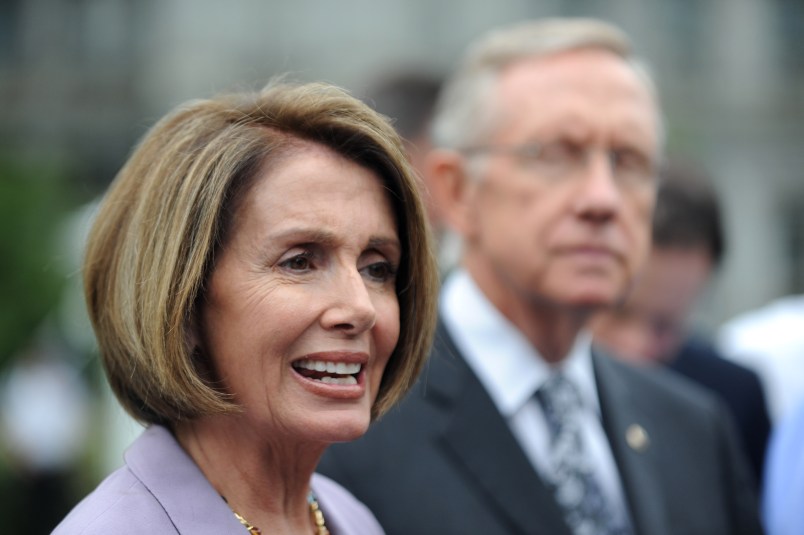A new way forward on health care is gaining some traction among Democrats, who are preparing for the possibility that Democrat Martha Coakley will lose her bid to replace Ted Kennedy in the Senate, costing Democrats their 60th vote, which they’ll need to overcome the filibuster.
The House has been preparing to tweak the Senate bill with a package of amendments based on a deal reached last week with organized labor, send it back to the upper chamber for final passage, and claim victory. But Coakley could well lose her race, depriving Democrats of the 60th vote they’d need to overcome a filibuster, and that unthinkable possibility is forcing party leaders to consider a Plan B.
As I noted last week, the House could simply pass the Senate bill unchanged, and Obama could sign reform into law. As recently as last week, a number of high-profile Democrats were saying that would never fly. But many are now suggesting that the House might still pull through, if House members are promised that the deal they agreed to last week will be passed separately–and quickly–through the filibuster-proof budget reconciliation process.
Jim Manley, spokesman for Senate Majority Leader Harry Reid, told the Boston Globe, the idea is “well within the scope of the rules of the Senate,” and, indeed, the deal with labor is largely a change to the tax structure of the bill, which is the sort of issue the reconciliation process is designed to address.
But there’s another, extremely important X-factor.
Even if progressives can be convinced, in light of the Massachusetts curveball, to hold tight and pass the Senate bill, there’s still the question of whether vulnerable members (freshmen, sophomores, red-state Democrats) will react to the loss of Kennedy’s seat in sky-Blue Massachusetts with panic, and rush for the exits.
And yet, this is the most appealing option on the table for Democrats. There’s almost no chance that the White House or Senate leadership could convince Sen. Olympia Snowe (R-ME) not to filibuster the bill if the House sent it back over with their changes. Dems also don’t want to start from scratch, and pass an entirely different bill through the reconciliation process. And all of those long-shot possibilities are much more appealing than defeat.
Discussions between members are ongoing, and nobody thinks moving ahead will be easy. But Democrats aren’t willing to accept a Coakley defeat as a death knell for the year long fight over health care. At least not yet.










